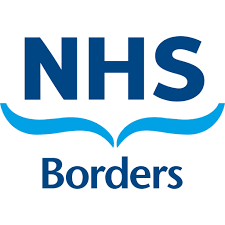Mycoplasma genitalium

Background
Mycoplasma genitalium was first isolated in 1981. It is the smallest known self-replicating bacterium. It lacks a cell wall, and hence is not visible by Gram stain.
Prevalence estimates for M. genitalium infection in men and women in the general population range from 1-2%. Similar to C. trachomatis, risk factors for M. genitalium infection include younger age, non-white ethnicity, smoking, and increasing number of sexual partners. Amongst STI clinic attendees, prevalence ranges are higher, from 4-38%.
Transmission is primarily by genital-genital contact, but M.genitalium has also been detected in the ano-rectal compartment and transmission by penile-anal contact has been established. The relative contribution of oral sex is likely to be very small.
M.genitalium infection is unequivocally and strongly associated with NGU. Typically, the prevalence of M. genitalium in men with NGU is 10-20% and in male patients with non-chlamydial nongonococcal urethritis (NCNGU) is 10-35%, as compared to 1-2% in the general population.
M.genitalium is also associated with persistent and recurrent urethritis, where up to 40% of patients may have M. genitalium detected.
Several studies support an association of M. genitalium infection in cisgender women with post coital bleeding and cervicitis, endometritis and pelvic inflammatory disease (PID).
The evidence suggests that the majority of people infected with M. genitalium in the genital tract do not develop disease. Current treatments are imperfect and associated with development of antimicrobial resistance. There is no evidence that screening asymptomatic individuals will be of benefit.
Testing for M.genitalium is not part of routine STI tests in NHS Borders (or elsewhere in Scotland). Patients may attend having tested for Mycoplasma genitalium (and occasionally Mycoplasma hominis) at other clinics, or online.
Clinical Features
Signs and symptoms in males
- None (majority are asymptomatic)
- Urethral discharge
- Dysuria
- Penile irritation
- Urethral discomfort
- Urethritis (acute, persistent, recurrent)
- Balanoposthitis
It isn’t clear whether Mycoplasma genitalium is a cause of proctitis in MSM. The current consensus is that it does not.
Possible Complications in males
- Sexually acquired reactive arthritis (very rare)
- Epididymitis
Signs and symptoms in females
- None (majority are asymptomatic) Dysuria
- Post-coital bleeding
- Painful inter-menstrual bleeding
- Cervicitis
- Lower abdominal pain
Possible complications in females
- Pelvic inflammatory disease
- Tubal factor infertility (uncertain association)
- Sexually acquired reactive arthritis
- Pre-term delivery
Indications for testing
Testing for Mycoplasma genitalium is now available through our lab (done in NHS Lothian lab). Testing will only be performed for certain specific clinical indications as below.
The sample required is the standard chlamydia/GC NAAT (urine in males, SOLV in females).
Testing can be requested retrospectively on samples taken up to a week earlier – contact BGH lab to discuss whether this is an option.
Men:
Recurrent or persistent NGU (whether Chlamydia positive or negative).
Men who attend with persistent microscopically confirmed NGU at least two weeks after initiating treatment, who are either Chlamydia negative, or if initially Chlamydia positive have no risk of reinfection.
Current partners of patients treated for Mycoplasma genitalium
Women:
PID with symptoms persisting after 2 weeks of treatment.
Women with (significant) persistent symptoms and signs of PID at least two weeks after initiation of treatment with ofloxacin or doxycycline plus metronidazole.
Current partners of patients treated for Mycoplasma genitalium
If there is any doubt about the indication for testing, please discuss with GUM senior. Patients referred by GPs to Sexual Health for M.genitalium testing should be discussed with the GUM senior.
Management
For conditions possibly associated with Mycoplasma genitalium where no test has been taken or there is no test result available, such as non-gonococcal urethritis, PID; follow the relevant treatment protocol.
Asymptomatic patients diagnosed with M. Genitalium (or with M.hominis) – these will be patients tested at other clinics or on line, or occasionally as contacts of infection.
AND for patients with uncomplicated lower genital tract infection (such as NGU, cervicitis) with a positive test for M. Genitalium (or M.hominis)
First line
Doxycycline 100mg bd for 7 days (usually already given for initial NGU treatment) followed by azithromycin 1g orally as a single dose then 500mg orally once daily for 2 days.
(where organism is known to be macrolide-sensitive or where resistance status is unknown)
If more than 2 weeks has elapsed since completion of doxycycline course, consider repeating this prior to starting azithromycin.
Second line
Moxifloxacin 400mg orally once daily for 10 days (if organism known to be macrolide-resistant or where treatment with azithromycin has failed)
Third line treatment for persistent M. genitalium infection after azithromycin and moxifloxacin (or known resistance)
Doxycycline 100mg bd for seven days then pristinamycin 1g orally four times daily for 10 days (discuss with GUM Senior)
Complicated M. genitalium infection (PID, epididimo-orchitis) with a positive test for M. Genitalium (or M.hominis)
Moxifloxacin 400mg orally once daily for 14 days
Patients should be advised to abstain from sexual intercourse until 14 days after the start of treatment, and until symptoms have resolved. There is a Patient Information Leaflet on the BASHH website.
Partner notification
Only current partner(s) (including non-regular partners where there is likely to be further sexual contact) should be tested and treated if positive.
Pregnancy and breastfeeding
Discuss with GUM Senior
Test of Cure and follow up.
All patients should attend for a TOC five weeks from start of treatment.